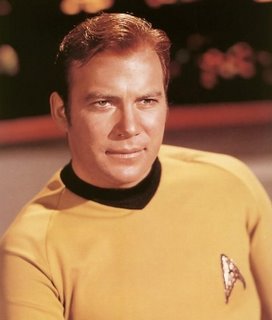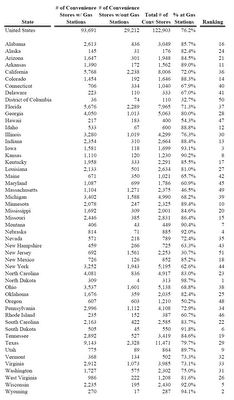A
new study, backed by the Reason Foundation, a libertarian think-tank, and authored by Bethany Peters and
Edward Stringham, claims to discover why drinkers earn more than non-drinkers, which is apparently a well-established fact. (I had no idea.) Here's the abstract:
A number of theorists assume that drinking has harmful economic effects, but data show that drinking and earnings are positively correlated. We hypothesize that drinking leads to higher earnings by increasing social capital. If drinkers have larger social networks, their earnings should increase. Examining the General Social Survey, we find that self-reported drinkers earn 10-14 percent more than abstainers, which replicates results from other data sets. We then attempt to differentiate between social and nonsocial drinking by comparing the earnings of those who frequent bars at least once per month and those who do not. We find that males who frequent bars at least once per month earn an additional 7 percent on top of the 10 percent drinkers’ premium. These results suggest that social drinking leads to increased social capital.
Wow. That's an amazing result, and suggests that we should all meet up for a drink this weekend. But, wait, you say. Where's the evidence of causation? Couldn't it just be that social people have more social capital and also drink more, rather than their hypothesis that drinking more leads to being more social? Good point, and the authors even note something similar to it:
Whether abstainers choose not to be as social or whether organizers of social occasions involving drinking exclude abstainers is unclear.
Great, so they note this issue and surely will provide some sort of instrument to control for this, right? Wrong. Here's the author's take on their regressions:
We therefore estimate the following equation:
Yi = γXi+ βAi + δBi + εI
where Y is the log of real earned income by individual i; X is a vector of personal and demographic characteristics; A is the drinking dummy variable; and B is the social vs. nonsocial drinking dummy variable.
The drink dummy comes from this question:
The survey question on alcohol asks respondents, “Do you ever have occasion to use any alcoholic beverages such as liquor, wine, or beer, or are you a total abstainer?” From this question we create a dummy variable where drinkers have a one and abstainers have a zero.
and the social vs. nonsocial drinking dummy comes from this one:
The survey also asks respondents the frequency with which they go to a bar or tavern. Choices include the following: almost every day, once or twice a week, several times per month, about once per month, several times a year, about once a year, never, and don’t know. From this question we create a variable indicating whether an individual frequents a bar or tavern at least once per month.
The regression results show that the coefficients on A and B are positive and significant for men and that A is positive and significant for women. (The coefficient on B for woman is essentially the same as for men, but with a larger standard error that makes it statistically insignificant. For some reason, though, the authors focus on their being a real difference between the social effect for men and women, even though the point estimates are essentially the same, a point
Andrew Gellman takes them to task for.)
How can we interpret these results? Really, they say nothing more than people who drink (and visit bars) earn more than those that don't. The authors' claim that drinking and visiting bars increases is an investment in social capital and thus leads to higher wages is a possible explanation, but it can just as well be that people with more social capital (and thus higher wages) for other reasons are more likely to drink and to visit bars.
I can't understand why the authors do not try to disentangle the drinking variable (A) from the social drinking variable (B) in some way. I don't think anyone thinks that drinking alone will help your wages (
Bethany Peters certainly doesn't), but the authors don't try to seperate the two variables in any way. I imagine that the two variables are highly correlated and thus throwing them both in a linear OLS regression can cause all sorts of troubles. Furthermore, the General Social Survey that they use for their data certainly has other variables available that might help pin down the size of an individual's social circle apart from alcohol consumption. Using data like this might help them isolate the effect of drinking apart from other factors that increase/decrease social capital. As it stands, though, their results are a mess that seem like what you might see in an undergraduate's class project or a bad undergraduate thesis.
(Note: The paper was also recently published in the
Journal of Labor Research; I can't access the article, but a working paper version (
PDF) at Stringham's website suggests that it is essentially the same and has these same problems.)
It's an outrageous claim that they are making that these results "prove" that drinking causes you to earn higher wages. They don't prove anything by running OLS regressions on simultaneously determined variables which also suffer from ommitted variables. And while there is a plausible link between social drinking (due to its social nature) and higher wages, that doesn't even start to explain their bizarre finding that drinking alone "raises" wages by 10%. That should have been a bright, flashing sign telling that their regression is not capturing what they think it is. Instead, the results are being help up by the Reason Foundation as policy advice:
Most importantly, restrictions on drinking are likely to have harmful economic effects. Not only do anti-alcohol policies reduce drinkers’ fun, but they may also decrease earnings. One of the unintended consequences of alcohol restrictions is that they push drinking into private settings. This occurred during the Alcohol Prohibition of 1920-1933 and is happening on college campuses today. By preventing people from drinking in public, anti-alcohol policies eliminate one of the most important aspects of drinking: increased social capital. From this perspective, anti-alcohol campaigns can be considered harmful to individuals and the economy as a whole.
Yikes. Of course, their results show that even drinking alone, in private settings, increases your income, so anti-alcohol policies aren't too bad. This doesn't even seem like a strong enough policy prescription. Why don't we have the government pass out free beer at city hall? That way, everyone can drink (+10% wage) and drink socially (+6% wage) and we'll all be happy. Just as long as we don't all drive home....
ETA: Bryce shows that, as we speculate here, conditional on not yet being a drinker, having a larger social network at time T is correlated with becoming a drinker before time T+1 and T+2.






